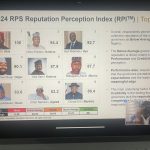Miracle Akubuo
Boluwatife Ajibade, a 27-year-old psychology graduate from Adekunle Ajasin University, AAUA, dreamt of becoming an actor and a movie director. However, the harsh reality of needing a stable income to support his dream and a seemingly unpromising labour market forced him to take a detour.
Fresh out of university, Mr Ajibade’s hope dwindled as he faced government apathy towards graduates and widespread unemployment. Landing a job at a government company, although financially secure, felt like a disheartening departure from his envisioned career path.

The stark reality was far from what he had anticipated. Unlike the past, where government jobs were readily available for fresh graduates, Mr Ajibade felt like he was living in a different era where such opportunities were nothing more than folktales.
“Back then, the government used to create avenues for employment, but now, those doors are closed,” Mr Ajibade bemoaned.
Unemployment Deteriorating Impact
Every year, millions of graduates emerge from Nigerian universities, with many facing the daunting challenge of unemployment. This persistent issue, causing widespread concern among graduates and the general public, has contributed to a deteriorating state of security in the nation, including a rise in kidnappings that disrupt the daily lives of citizens.
In contemporary Nigeria, graduating students find themselves teetering on the edge of a precarious future, facing the stark reality of widespread unemployment. For these hopeful individuals, their hard-earned degrees, once seen as beacons of hope, often lead to shattered dreams and an uncertain path forward.
A report by the National Bureau of Statistics (NBS), published by Channels TV, shows a decrease in Nigeria’s unemployment rate from 5.3% in Q4 2022 to 4.1% in Q1 2023.
The data reveals that 73.6% of working-age Nigerians were employed in Q4 2022, increasing to 76.7% in Q1 2023. This suggests most worked at least one hour a week for pay or profit. Nevertheless, underemployment persists, with 13.7% in Q4 2022 and 12.2% in Q1 2023 wanting more work hours.
The report emphasises that many Nigerians pursue self-employment through businesses or farming activities. While unemployment fell to 4.1% in Q1 2023, similar to other developing nations, 93.5% in Q4 2022 and 92.6% in Q1 2023 were engaged in informal employment. This highlights the need for formalization and improved job quality.
The report concludes with an upward trend in Nigerians operating their own businesses or engaging in farming, further indicating the prevalence of self-employment.
Entrepreneurship As A Beacon Of Hope
As unemployment rises daily, entrepreneurship becomes a fast-growing option for Nigerians seeking to avoid remaining idle.
In Nigeria, both educated and uneducated citizens are increasingly advised to pursue vocational skills, as securing employment is becoming increasingly difficult.
Mr Ajibade, who once dreamt of becoming an actor and a movie director, has expressed a keen interest in leveraging his university-acquired skills due to unemployment.
Ogunsakin Akinwale, a microbiology graduate from the Federal Polytechnic Offa, Kwara State, whose hope of securing a government job was fading, has invested in a gas business he started during his undergraduate years.
Similarly, Adams Dhikrullah, a graduate of Geography education from AAUA, expressing distrust in the government’s ability to provide job opportunities, suggests that the government should invest in improving the electricity sector, as he believes this will attract industries and stimulate the country’s employment landscape.
Esther Oguntuase, a Mass Communication graduate from AAUA, shares the sentiment of self-reliance in the face of employment challenges.

“I don’t expect anything from the government. As everyone knows, there are no available government jobs. I have been preparing and developing myself to be more self-sufficient and dependable,” she explained.
Elaborating on her strategy, Ms Oguntuase detailed her continuous efforts to secure a better future by utilising her content creation skills as an undergraduate.
She is a content creator and ghostwriter with a presence on LinkedIn and Twitter under the name ‘Esther Oguntuase.’ As a business owner and entrepreneur, she creates content for online feasibility and social media, writes feature stories as a script and ghostwriter, and assists clients in visualizing ideas, aligning them with top-notch public relations and advertising services. She emphasised that she has diligently developed her skills in these areas before she graduated.
Ms Oguntuase advice for undergraduate—recent graduates was to focus on self-reliance and self-belief instead of relying on the government or others for job opportunities.
She stressed that individuals who prepare and develop themselves as an undergraduate will be better positioned to seize opportunities, even if someone else is initially considered.
A Need To Evaluate School Curriculum
Ms Oguntuase believes the unemployment rate among graduates is due to outdated school curricula, emphasising the need for a government-led curriculum review across all levels, from secondary school to tertiary institutions.
This review she believes would focus on creating practical and less theoretical curriculum content that reflects contemporary realities instead of outdated topics from the 1990s.
Ms Oguntuase further highlights the detrimental effects of this lack of practical knowledge among students—noting that empowering students with relevant knowledge from their primary years is crucial, as many talented individuals lack the skills needed to thrive in the real world.
Using her experience as a Mass Communication student, shw exemplifies the incompatibility between the current curriculum and real-world requirements.
She points out that many students lack essential digital skills needed in their field, hindering their future careers.
“For instance in school as a Mass Communication student, I think we need more leverage in the school curriculum. Most student in the department did not have the digital skills they need to explore in their field, imagine a broadcast student who can’t relate well with things pertaining to social media, talk more of public relations as a student in such field.This is disheartening and more such will be produced if not given proper review to school curriculum.”
Skills Needed, Degree Would No Longer Be Guarantee For Job

The Registrar of the joint admission and matriculation board (JAMB), Professor Ishaq oloyede urges Nigeria youth to seek demonstrable skills as a means of survival, warning that very soon university degree would no longer be the sole guarantee for a job.
Mr Oloyede disclosed this on Thursday, 14 December 2023 while delivering the convocation title lecture titled ‘learning, unlearning and relearning- prerequisites of the digital age’ which took place at the Kwara State University, Malete.
According to him, “new opportunities will emerge in the high-tech sector, and many skills that were not otherwise taught in conventional schools would be needed. Degrees would no longer be the sole guarantee of jobs, but demonstrable skills would.
“In this regard, there won’t be a meaningful difference between the literates and the illiterates without the cutting-edge skills that are associated with the triad – learning, unlearning, and relearning at the Kwara State University, Malete.”
Expert Weighs In
A lecturer at AAUA, Mr Ishola Lamidi challenged graduates to view unemployment as an opportunity to apply their broader thinking and utilize the skills they gained in school.
He argued that the current unemployment situation shouldn’t cause anxiety, but rather inspire critical thinking and creativity to explore legitimate means of income generation and apply their learned skills.
“For instance, I don’t expect those that study agriculture or fishery to fold their hands in search of government jobs. There are vast and fertile land in Nigeria. They can start investing their skill in it and from there they would be employers of jobs and self dependent.”
Speaking further, he encouraged institutions of higher learning to prioritize the proper training of students in their respective fields.
“Higher institutions should also be equipped to train graduates who will become employers, not the other way around,” he said.
However, he admonished the government to promote and encourage investors while also providing support for small-scale enterprises.
“The government should try as much as possible to encourage investors to create more industries in the country.Also, encourage small scale industries by supporting them with loans for business.”













